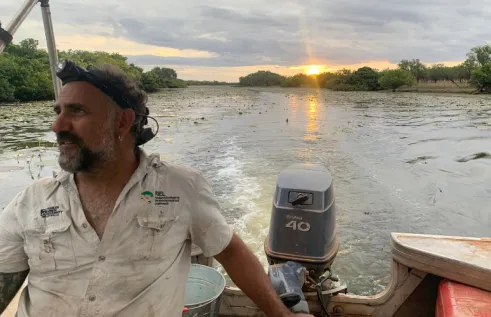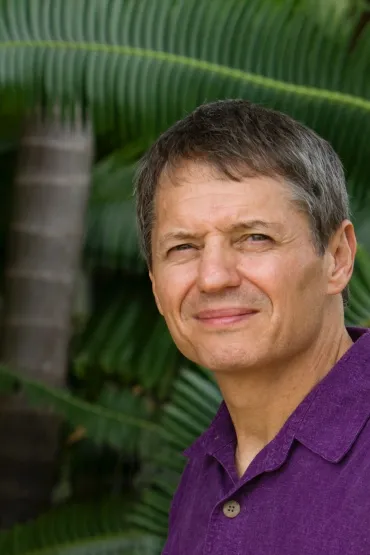RIEL seminar series
Are there useful generalisations about climate change & physiological plasticity?
| Presenter | Prof. Keith Christian | |
|---|---|---|
| Date/Time |
to
|
|
| Contact person | E: RIEL.outreach@cdu.edu.au | |
| Location | Casuarina campus Yellow 1.1.39 and online | |
| Open to | Public | |
Organisms can survive changing environments in two main ways: they can evolve new tolerances (requires genetic variability and time); or, within the lifetime of an individual, they can use their existing capacity to adapt to changing conditions.
This talk will deal with the second of these, which can be referred to as physiological plasticity, or acclimatisation. There is a widely-accepted view that, because tropical environments are less variable than conditions in temperate zones, tropical organisms have less physiological plasticity and are therefore more susceptible to the effects of global warming and climate change.
Over the past 45 years, Prof. Keith Christian has studied the physiology and ecology of amphibians and reptiles in tropical environments in South America, the Caribbean, and Australia. He will use that experience to challenge the generalisations that have been made about tropical organisms and will talk about what – if any – useful generalisations can be made.
RIEL's Prof Christian is a zoologist whose interests include the physiological and behavioural adaptations of animals – particularly reptiles, amphibians and ants – in response to their physical environment. He has published in the areas of comparative physiology, physiological ecology, exercise physiology, thermoregulatory biology, respiratory physiology, biophysical ecology, and biological control.
Related Events

STATE OF THE DIS-UNION: Media Literacy in the age of AI
The CDU Library is hosting a free panel discussion featuring Northern Territory journalists who will discuss media literacy, truth, and storytelling in the AI era. Attendees can learn how AI is transforming media, ask questions, and improve their understanding of navigating information in today's landscape.
Read more about STATE OF THE DIS-UNION: Media Literacy in the age of AI
Trophic dynamics of free-flowing tropical rivers
Colton Perna's PhD research explores how river flows and flooding shape freshwater fish communities in tropical rivers, using fatty acids to track how hydrology influences food webs and nutritional pathways. His findings highlight the critical importance of river flow and floodplain connectivity in sustaining productive aquatic ecosystems.
Read more about Trophic dynamics of free-flowing tropical rivers
Why Cross‑Cultural Communication Matters in Indigenous-focused Research
A cross‑cultural research partnership grounded in respect, shared knowledge, and educational equity. Discover how collaboration shaped a transformative PhD journey.
Read more about Why Cross‑Cultural Communication Matters in Indigenous-focused Research
